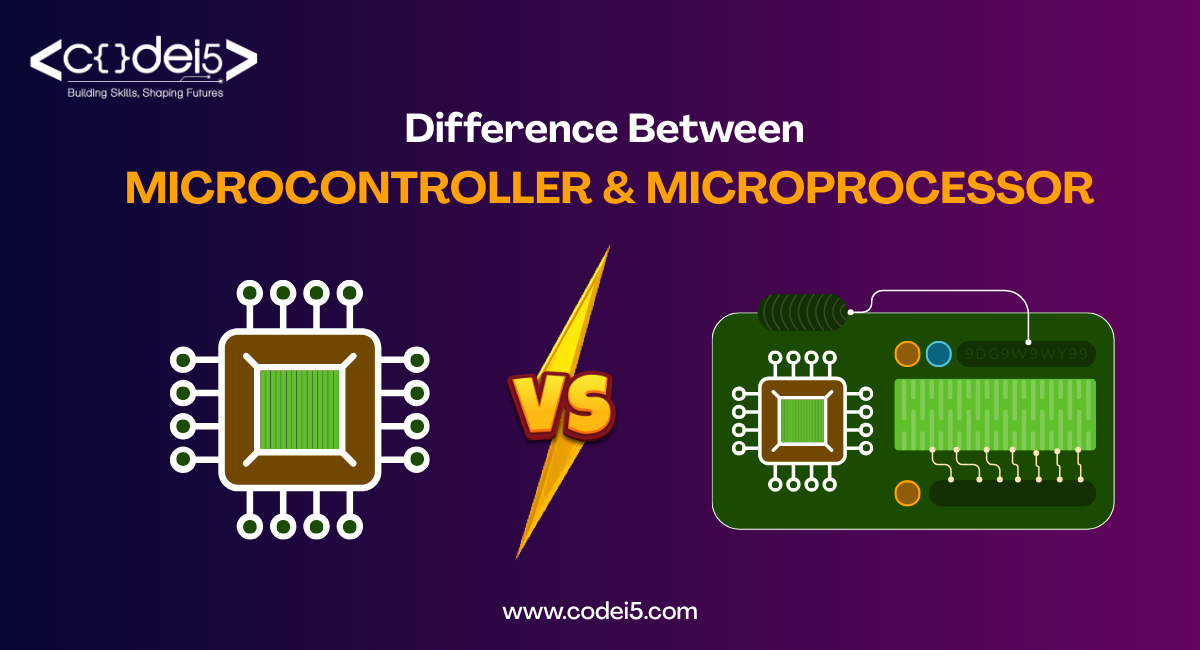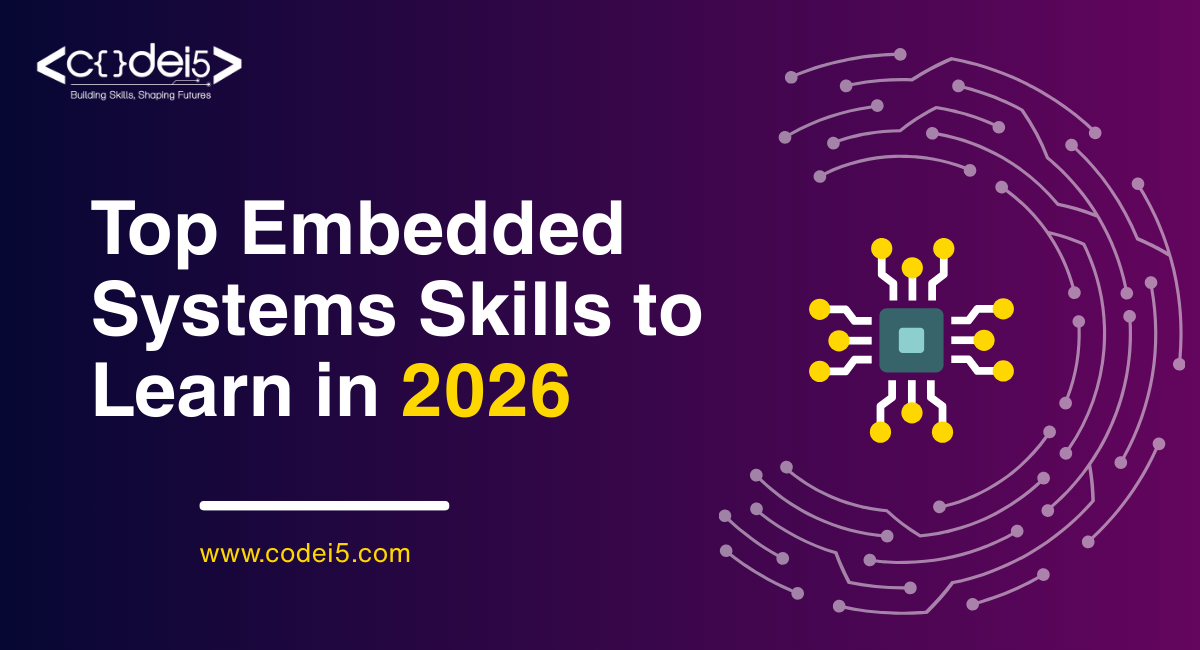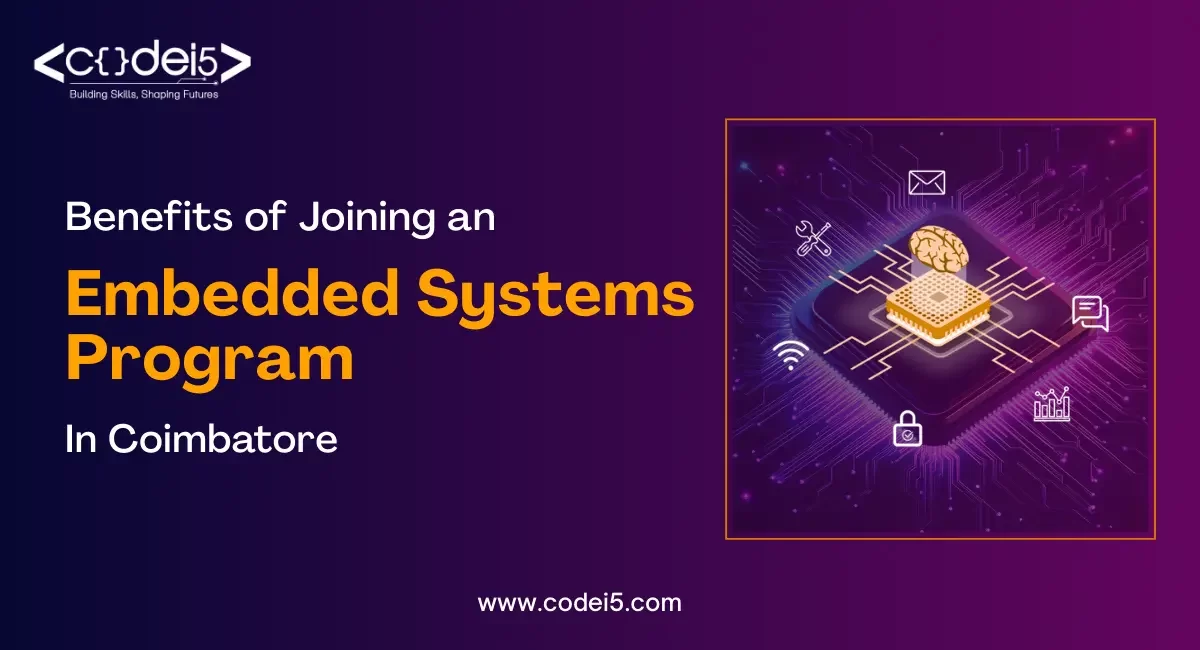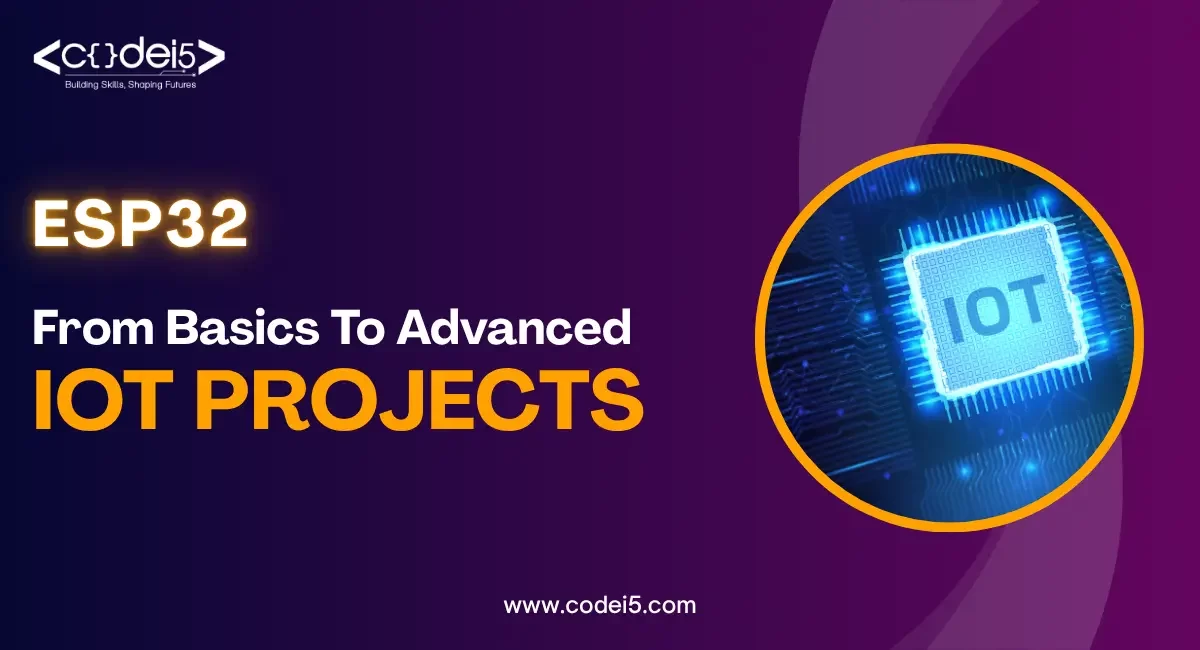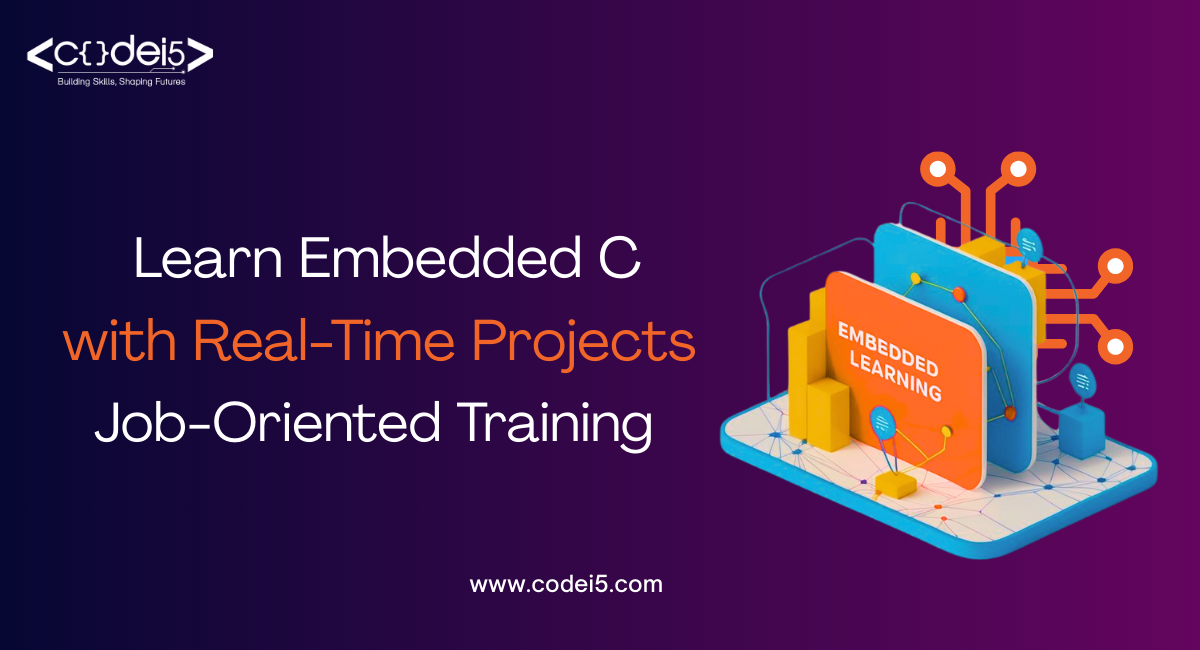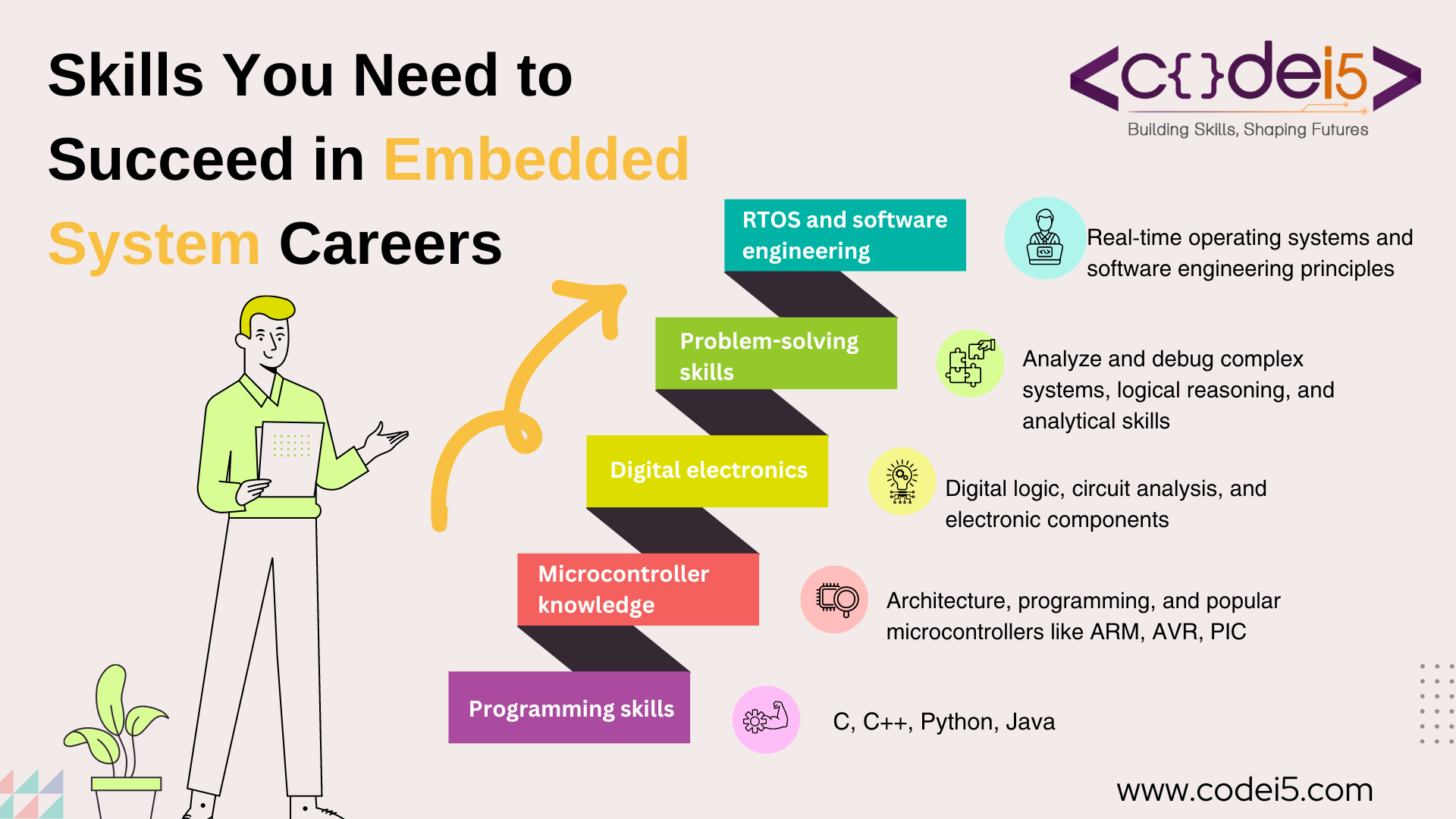
Embedded systems are everywhere, from smart home devices to medical implants, and the demand for skilled professionals to design, develop, and deploy these systems is on the rise. To succeed in an embedded systems career, you need a combination of technical skills, soft skills, and knowledge of industry trends. In this blog, we’ll explore the top skills you need to succeed in embedded systems careers.
Let’s start with the basics: what is an embedded system, and how does it work?
What is an Embedded System?
An embedded system is a combination of hardware and software designed to perform a specific task. It is a computer system that is embedded in a device, machine, or system, and is used to control, monitor, and interact with the physical world. Embedded systems typically consist of a microprocessor, memory, and input/output peripherals, and are programmed to perform a specific function or set of functions.
So, how does it work? An embedded system works by:
- Taking input from sensors or user interfaces
- Processing the input using a microprocessor and software
- Generating output through actuators or displays
- Interacting with the physical world through input/output peripherals
For example, a smart thermostat uses sensors to detect the temperature and humidity, processes the data using a microprocessor and software, and generates output by adjusting the heating or cooling system.
Now that we’ve covered the basics, let’s explore the top skills you need to succeed in embedded systems careers…”
Programming Skills
1. Proficiency in:
- C
- C++
- Python
2. Knowledge of:
- Assembly language
- Scripting languages: (Perl, Shell scripting)
Microcontroller and Microprocessor Knowledge
1. Familiarity with microcontroller architectures:
- ARM (Advanced RISC Machines)
- AVR (Alf and Vegard’s RISC processor)
- PIC (Programmable Intelligent Computer)
2. Knowledge of processor instruction sets
Digital Electronics and Circuit Design
1. Strong understanding of:
- Circuit analysis
- Digital logic
- Electronic components
2. Knowledge of:
- Digital circuits and systems
- Microelectronic devices and circuits
- Analog-to-digital and digital-to-analog conversion
3. Familiarity with:
- Circuit design and simulation tools (e.g. SPICE, Verilog)
- Digital signal processing and analysis
Operating Systems and Real-Time Operating Systems (RTOS)
1. Familiarity with:
– Operating Systems:
- Linux
- VxWorks
– Real-Time Operating Systems (RTOS):
- FreeRTOS
- Zephyr
2. Understanding of:
- Process management and scheduling
- Memory management and allocation
- Interrupt handling and prioritization
- Interprocess communication and synchronization
3. Knowledge of:
- OS and RTOS configuration and customization
- Device driver development and integration
- System initialization and boot-up procedures
Communication Protocols and Networking
1. Knowledge of:
– Serial communication protocols:
- UART
- SPI
- I2C
– Networking protocols:
- Ethernet
- TCP/IP
- HTTP
2. Understanding of:
- Data transmission and reception
- Protocol layers and stack
- Packet structure and formatting
- Error detection and correction
3. Familiarity with:
- Network topologies and architectures
- Socket programming and API
- Network debugging and troubleshooting tools
Debugging and Testing Skills
1. Proficiency in debugging tools:
- gdb (GNU Debugger)
- lldb (Low-Level Debugger)
2. Familiarity with testing frameworks:
- JTAG (Joint Test Action Group)
- Boundary scan
3. Ability to identify and troubleshoot system faults and errors
Version Control Systems (VCS)
1. Familiarity with VCS tools:
- Git (Global Information Tracker)
- SVN (Subversion)
2. Understanding of VCS concepts:
- Version control
- Branching
- Merging
- Committing
3. Ability to manage code revisions and collaborations using VCS
Soft skills
In addition to technical skills, embedded systems professionals need soft skills like:
- Communication and teamwork
- Problem-solving and analytical thinking
- Adaptability and continuous learning
- Time management and project coordination
Industry Knowledge and Trends
1. Staying up-to-date with industry trends
2. Knowledge of emerging technologies:
- IoT (Internet of Things)
- AI (Artificial Intelligence)
- Machine learning
Certifications and Continuous Learning
1. Certifications:
- Certified Embedded Systems Professional (CESP)
2. Continuous learning through:
- Online courses
- Conferences
- Workshops
3. Enroll in Codei5 Academy’s Embedded Systems course to demonstrate your commitment to the field and stay current with industry developments.
Conclusion
Succeeding in embedded systems careers requires a unique blend of technical and soft skills. By focusing on developing these skills, you’ll be well-equipped to tackle the challenges and opportunities in this exciting field. Remember to stay curious, keep learning, and always be open to new ideas and innovations. With the right skills and mindset, you can create innovative solutions that change the world!


